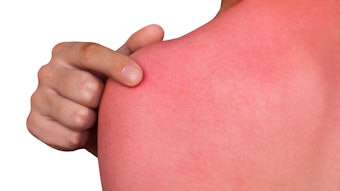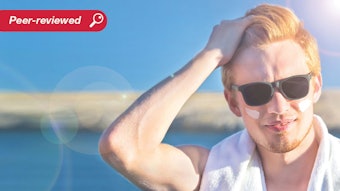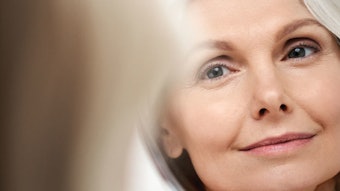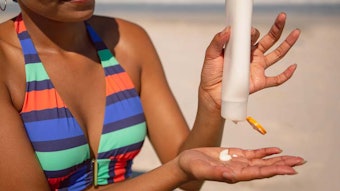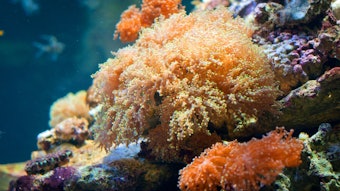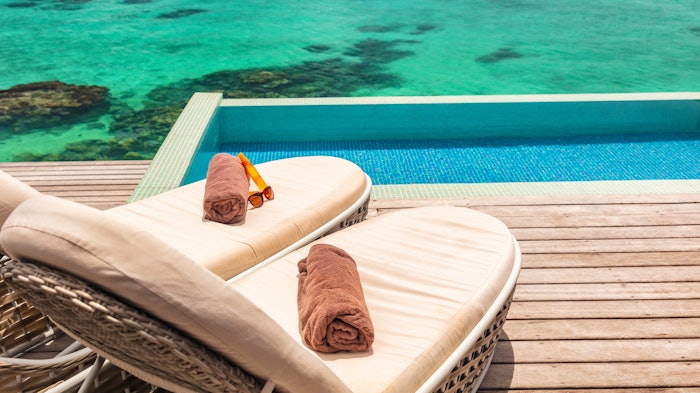
The Environmental Working Group (EWG) released its 18th Annual Guide to Sunscreens. The nonprofit corporation offers certifications for sunscreens, striving to provide a standard where the U.S. Food and Drug Administration (FDA) has lagged behind, per the corporation.
Log in to view the full article
The Environmental Working Group (EWG) released its 18th Annual Guide to Sunscreens. The nonprofit corporation offers certifications for sunscreens, striving to provide a standard where the U.S. Food and Drug Administration (FDA) has lagged behind, per the corporation.
The EWG approves only one in four sunscreens, which has lead to criticism for fearmongering from the PCPC.
EWG Sunscreen Regulations
Per EWG, its analysis of sunscreens includes hazard and efficacy ratings for hundreds of recreational sunscreens, daily-use moisturizers and lip balms with SPF. The ratings are based on a compilation of standard industry, government and academic data sources; efficacy models constructed by EWG scientists; and a continuous review of the technical literature on sunscreens.
Related: Walmart, Target Flagged for 'Deceptive' Reef-friendly Sunscreen Claims
Products are rated on five factors related to total ingredient hazard and efficacy in providing sun protection:
- Health hazards based on a review of the ingredients listed in nearly 60 standard industry, academic, government regulatory and toxicity databases.
- Ultraviolet B, or UVB, protection using SPF value as the indicator of effectiveness.
- Ultraviolet A, or UVA, protection using a standard industry absorbance model.
- Balance of UVA/UVB protection using the ratio of modeled UVA absorbance to labeled SPF value.
- Sunscreen stability, how quickly an ingredient breaks down in the sun, using an in-house stability database compiled from published findings of industry and peer-reviewed stability studies.
The overall rating for each product is calculated using a formula based on a combination of its health hazard and efficacy ratings.
In the final product score, EWG gives added weight to other concerning factors:
- If the product contains oxybenzone or vitamin A.
- If it is a spray or powder, which may pose inhalation risks.
- If it has an SPF value above 50+.
- If Its predicted UV protection is much lower than the SPF value would imply.
- If the product includes a banned FDA sunscreen marketing claim on the label, such as the word “sunblock.”
PCPC Pushes Back
In relation to the EWG's sunscreen guides, the PCPC recently stated that itself and its member companies "remain firmly committed to ensuring that Americans have access to a wide variety of safe and effective sunscreen products. We continue to work with the FDA to provide additional safety data on several ultraviolet (UV) filters in order to ensure consumer confidence in the safety and effectiveness of these critical products."
Further, the PCPC stated that “unfortunately, once again, the Environmental Working Group’s (EWG) sunscreen guide misleads consumers into assuming sunscreen products are unsafe, thereby jeopardizing public health. Sunscreen is a crucial and well-recognized tool in the fight against skin cancer. Our goal is to help consumers make informed decisions and continue to use sunscreens as an important part of their daily health routine.
“For these reasons, we remain concerned that the Sunscreen Innovation Act, which was signed into law in 2014, has not lived up to its promise to increase the speed of approvals for new active sunscreen ingredients. The FDA has not approved new UV filters since 1999. Additionally, globally approved filters used in Europe and other regions are not available in the U.S., greatly limiting options for American consumers."
According to the PCPC website, the council is a longtime supporter of the SUNcate program. The website states that the program is "led by the American Society for Dermatologic Surgery Association (ASDSA) in collaboration with the National Council on Skin Cancer Prevention. This public health initiative spreads awareness about the importance of sun-protective behaviors and works to remove barriers that prohibit access to important sun-protective measures, such as sunscreens and sun-protective clothing."
The PCPC also stresses that more research into the impacts of UV filters on coral reefs is necessary for a more reliable consensus, per its website. A need for more research was also further exemplified as Walmart and Target were accused of deceptively marketing its private label brand Up & Up sunscreens as "reef-conscious"
Debbie Waite, Steinberg & Associates and U.S. regulatory columnist for C&T commented: "This ongoing pattern of attacking ingredients on the one hand fosters innovation as suppliers seek to stay ahead of the prohibition/restriction curve, but on the other hand, it limits availability of perfectly safe and effective ingredients. What is frequently not discussed is the overall formulation and the synergy that makes the finished product a great product. It does not take into account "the dose makes the poison"; remember - water is essential for life - but too much water will kill you."
